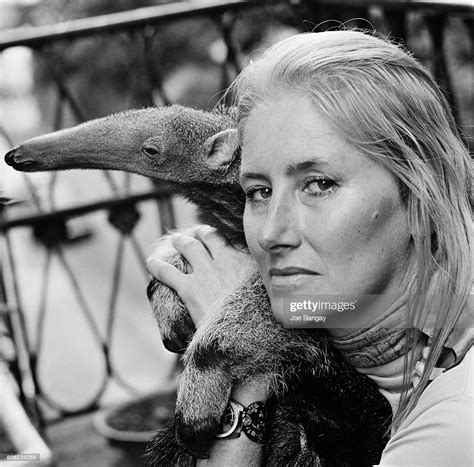A Quote by Clay Shirky
Our social life is literally primal, in the sense that chimpanzees and gorillas, our closest relatives among the primates, are also social.
Related Quotes
Charles Darwin and I and you broke off from the family tree from chimpanzees about five million years ago. They're still our closest genetic kin. We share 98.8 percent of the genes. We share more genes with them than zebras do with horses. And we're also their closest cousin. They have more genetic relation to us than to gorillas.
...chimpanzees, bonobos, gorillas, and orangutans are thinking, self-aware beings, capable of planning ahead, who form lasting social bonds with others and have a rich social and emotional life. The great apes are therefore an ideal case for showing the arbitrariness of the species boundary. If we think that all human beings, irrespective of age or mental capacity, have some basic rights, how can we deny that the great apes, who surpass some humans in their capacities, also have these rights?
We admit that we are like apes, but we seldom realise that we are apes. Our common ancestor with the chimpanzees and gorillas is much more recent than their common ancestor with the Asian apes - the gibbons and orangutans. There is no natural category that includes chimpanzees, gorillas and orangutans but excludes humans.
We belong to that order of mammals, the primates, distinguished by its propensity for repeated single litters, intense parental care, long life-spans, late sexual maturity, and a complex and extensive social existence... Our protracted biological and psychological helplessness, which extends well into the third year of life, intensifies the bond between infant and parents, making possible a sense of generational continuity. In contrast to other primates these bonds are not obliterated after sexual maturity.
In the digital universe, our personal history and its sense of narrative is succeeded by our social networking profile - a snapshot of the current moment. The information itself - our social graph of friends and likes - is a product being sold to market researchers in order to better predict and guide our futures.
Our age gives the more receptive among the young such a sense of social responsibility that one is inclined at times to fear that social interests may encroach upon individual development, that a knowledge of all the ills affecting the community may act as too powerful a damper on the joys of youth.
My Third-World roots remind me that the vast majority of our fellow human beings live hungry, sick, and uneducated, and that most social scientists, even in that world, ignore that ugly reality. This is why my papers in mathematical sociology deal not with free choice among 30 flavors of ice-cream, but with social structure, social cohesion, and social marginality.
Our parents, our tribesman, our authority figures, clearly expect us to be bad or anti-social or greedy or selfish or dirty or destructive or self-destructive. Our social nature is such that we tend to meet the expectations of our elders. Whenever this reversal took place and our elders stopped expecting us to be social and expected us to be anti-social, just to put it in gross terms, that's when the real fall took place. And we're paying for it dearly.






































